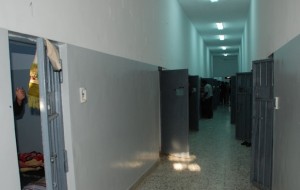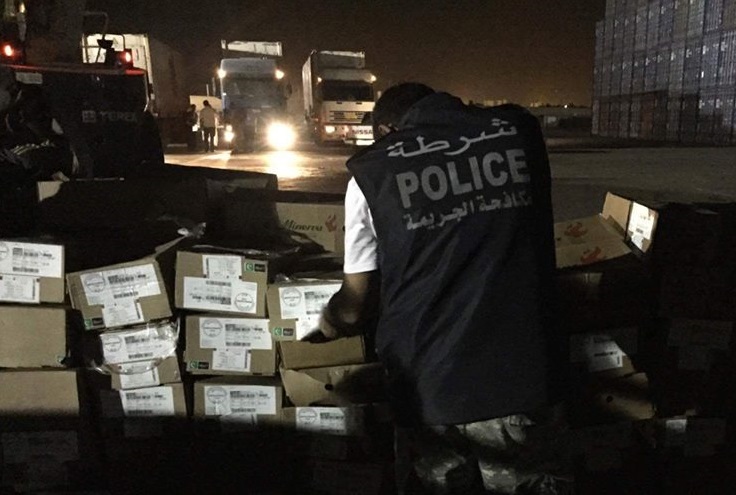By Libya Herald reporter.

Tunis, 17 July 2016:
In a statement on the killings of 12 former Qaddafi-era soliders, Amnesty International has suggested that Ali Al-Saadi, the head of the Ruwaimi prison where they were held, was lying when he declared last week that they were released into their families’ care and left the prison with them
Although the Amensty statement did it mention him by name or his declaration, it said that the prisoners were never handed over to their families.
“According to one of the victims’ family members, following the announcement of the detainees’ release, the families were contacted and advised to produce for the authorities the passport of their detained relatives, in order to process their release. The prisoners were never handed over to their families, however. One of the family members interviewed by Amnesty International alleged that the detaining authorities opposed their release. He said, “they [the prison authorities] weren’t happy with the decision to release them, so they made sure they didn’t leave that prison alive”.
Describing the killings as an “extrajudicial execution” and calling on the Government of National Accord to immediately carry out its promise to investigate the them and “break Libya’s endemic cycle of impunity by holding to account those found to be responsible”, Amnesty also said that although the bodies of all were riddled with bullets, there were no verifiable signs of torture or that the men’s feet and hands had been tied.
It suggested that the victims were unrestrained at the time they were murdered and possibly unaware of what was about to happen.
In a powerful condemnation of the entire Libyan justice system since the revolution, Amnesty says that it had previously documented torture and other ill-treatment in detention centres under the control of militias and successive governments in Libya, including in Ruwaimi prison.
“So far, there had not been any meaningful investigations, leading to prosecutions, into crimes allegedly perpetrated by armed groups affiliated with successive governments in Libya.”
Nor was it aware of anyone suspected of being responsible for torture or other ill-treatment being prosecuted since the end of the revolution, it said.
“Thousands of people detained in connection with the 2011 conflict remain held without due process. Many have been detained without charge or trial, judicial review or access to lawyers.”
In this latest case, it noted, although it was not possible to say exactly what had happened pending an investigation outcome, the Ruwaimi prison authorities as well as the interior ministry as a whole had “gravely failed in their obligation of due diligence to protect the right to life and physical integrity of the detainees”.
There was criticism too for the International Criminal Court.
“Despite its continued jurisdiction over Libya and the scale of documented abuses, the International Criminal Court (ICC) has so far failed to expand its investigations into ongoing crimes under international law perpetrated, citing a lack of resources and instability.”
Dismissing the reason, Amnesty said the ICC had to investigate crimes under international law committed by all sides since the revolution.
The Libyan authorities, also, had to show that they wanted to take action to break the culture of impunity and lawlessness. They could do so by ensuring that there was an impartial and thorough investigation into the 12 killings and that those suspected of involvement were brought to justice.
Like UN Special Envoy Martin Kobler earlier this week, Amnesty International also called on Libya to request help from the international community in conducting the investigation into the killings.







